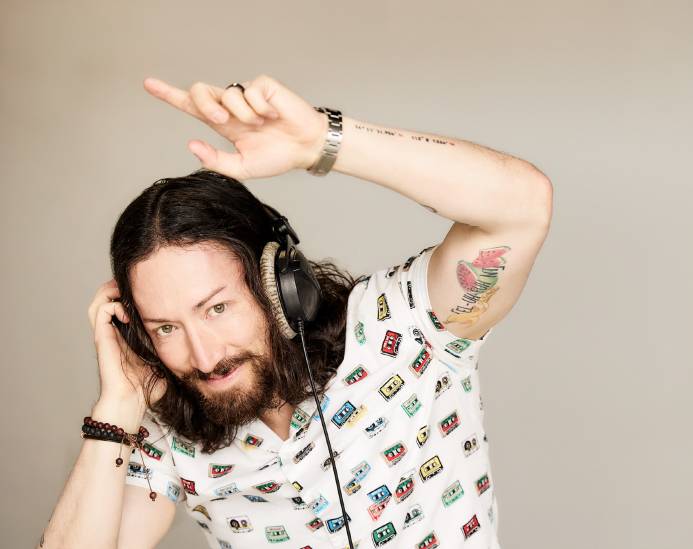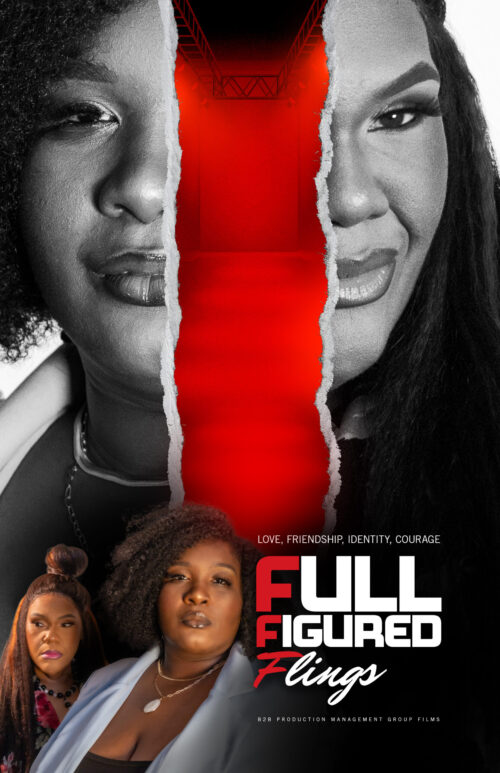We Speak Actors
Multi-award-winning voice actor Todd Haberkorn returns in ‘Destiny 2: Lightfall’

Todd Haberkorn is a big deal in the gaming and film world. You’ll have heard his voice-acting work in major TV series such as ‘Kung Fu Panda: The Dragon Knight’ alongside Jack Black and Rita Ora, and he’s also well-known for his VO in video games and anime films. ‘Destiny 2: Lightfall’ has just been released, with Todd reprising his role as the voice of the Drifter. He talks about his love for this mysterious space pirate, the exciting new series he’s directing, and the endless creativity of video games.
‘Destiny 2’ has just released its latest DLC, ‘Lightfall’ – can you shed some ‘light’ on the character you play?
“This latest release continues the layered space tale we’ve been a part of for years. My character, the Drifter, floats in and around the storyline, adding colour to the picture we’re painting with this new update to the game. There are so many branches to the story that it’s hard for me to keep it all straight! But with this expansion, we’ve got new powers, a new campaign, and much more. I don’t get to sing a pirate song in this DLC like I did the last one, though!”
Do you relate to the Drifter or is he very different from you?
“I always enjoy hopping in the saddle for my favorite space pirate! After working on it for years, I’ve only just learned that the character was created with me in mind – so that’s a fun fact to know. I prefer it when characters aren’t like me so I can take on the challenge of solving the acting puzzle in my hands. I become a detective and try to fill in all the gaps of who the person I’m playing is, and then I can bring the words on the page to life. The care that the creative team gives the storyline and the Drifter’s part within it continues to surprise me, while at the same time revealing more about his long history that just helps me as an actor. You hear a lot of the Drifter in the Gambit game mode on the multiplayer side.”

Are there any TV voiceover projects that you looked to for inspiration for this video game voiceover?
“Voiceover for cartoons and for video games are similar in the fact that they’re both acting behind the mic, but the process is different.
“A great director and good writing are important – they give me the ingredients I need to cook my voiceover dish.”
And then, hopefully, players of the game like it and keep coming back for more.”
What other projects have you been working on?
“‘HiFi Rush’ came out last month and I definitely got to exercise my villain muscles on that one. Talk about a game that’s very different from ‘Destiny 2’! It’s a rhythm-based adventure game with very colourful characters and animation. At the other end of the spectrum, I’m currently directing an animated series based on a video game franchise called ‘Hello Neighbor’. We’re starting from scratch with new animation, new voices and new scripts. It’s great to see the fans of the franchise supporting this animated series, which was the first animated series to debut inside a video game – you’ve got to play it to see what I mean! There’s a really powerful team of creatives behind it, including the minds behind the ‘Ben10’ series and ‘Big Hero 6’. Two episodes are out now and we’ve got more to come!”
Featured photo credit: Kevin Lynch
We Speak Actors
Full-Figured Flings Teaser Nears 14K Views – Director of Photography Offers Special Father’s Day Release

Back 2 the Basics Production Management Group is proud to announce the official teaser premiere for FFF: Full-Figured Flings, a bold and unapologetic new film celebrating full-figured women and challenging the norms of beauty in Hollywood. Clocking in at just 46 seconds, the teaser doesn’t waste a moment, delivering a powerful visual and emotional punch that sets the tone for a project rooted in body positivity, size inclusivity, and cultural truth.
Premiering ahead of the 20th anniversary of Phat Girlz (2006), FFF serves as both homage and evolution. The film expands the conversation around colorism, sizeism, and shapeism, spotlighting women who have often been cast aside, sidelined, or silenced.

“This teaser is more than a preview—it’s a declaration,” said Lillie Mae Jones, creator and producer. “FFF is our love letter to the women who’ve never been centered but have always been essential. We’re not just telling stories—we’re shifting the lens.”
FFF: Full-Figured Flings is currently in development as a non-union independent production, with plans to release in 2026. The film invites audiences and allies to follow, support, and amplify the message through community engagement, open casting calls, and creative collaborations—including the launch of a nationwide call for a “Big Girl Anthem” to serve as the film’s official theme song.


Accept the Challenge…
The buzz is building fast around the highly anticipated full-figured fashion experience FFF, and now there’s a challenge on the table that fans won’t want to miss.
After racking up 11,000 views in less than 10 days, the official teaser video for FFF on YouTube is quickly gaining momentum. And now, the film’s Director of Photography, Dominique Perry, has thrown down a bold offer:
“If we hit 20,000 views before Saturday, June 14th, I’ll drop an exclusive second teaser on Father’s Day.”
This is more than a film—it’s a movement. FFF is a high-fashion, high-impact visual celebration of full-figured women taking a stand for representation, inclusion, and power on and off the runway.
Here’s how you can help make it happen: Watch the teaser now on YouTube. Like, comment, and subscribe. Share it with your community and post why YOU stand in solidarity with full-figured women
Watch here for a taste of the boldness, beauty, and energy
-

 We Speak Volleyball1 week ago
We Speak Volleyball1 week agoBuilt for the Pressure, Wired to Compete: Loretta Duby’s Passionate Pursuit of Purpose Through Volleyball
-

 We Speak Soccer5 days ago
We Speak Soccer5 days agoNo Entry Allowed: How Austin Fortner Is Becoming a Standout Keeper with Confidence and Control
-

 We Speak Football6 days ago
We Speak Football6 days agoFrom Snap to Touchdown: How Niah Reyes Plays the Game with Heart and Hustle
-

 We Speak Coaches1 week ago
We Speak Coaches1 week agoCoach of Culture, Heart of a Movement: The Extraordinary Journey of Daniel Moore, Pioneer of Women’s Flag Football and Builder of Young Lives





















